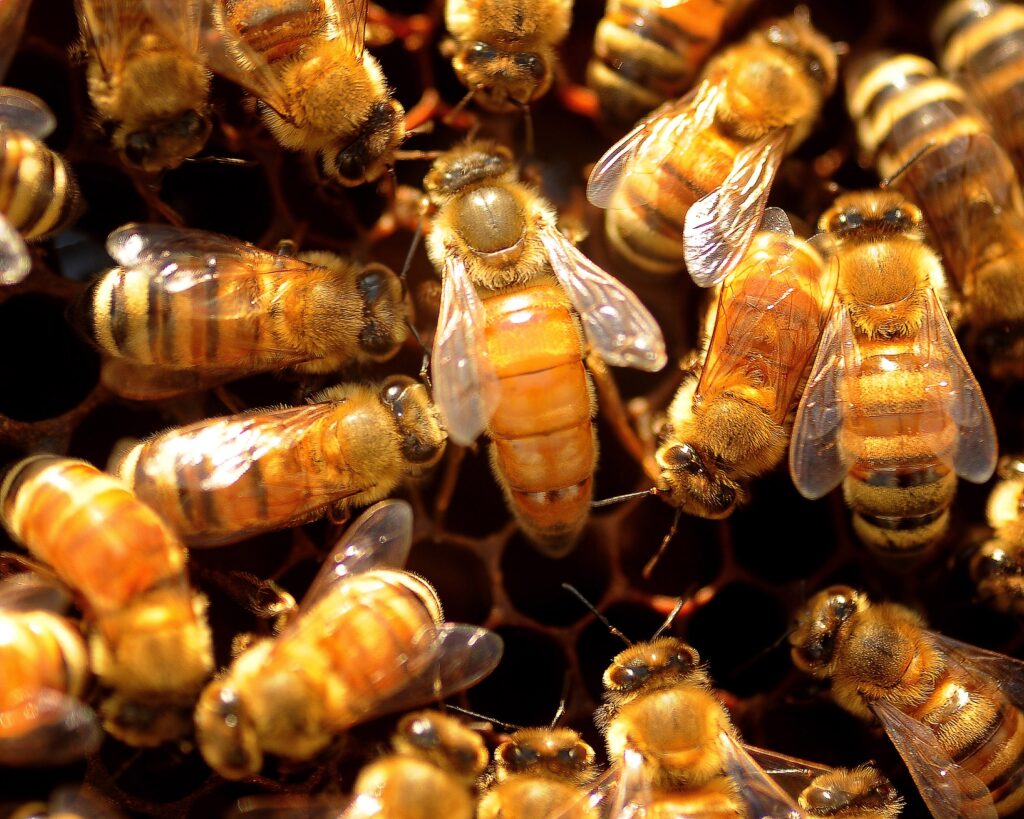British scientists are now studying queen bees to explore new ways to extend human lifespan and fertility. Unlike regular worker bees that live only a few months, queen bees can live for several years while staying fertile. Despite having nearly identical DNA, queens and workers lead very different lives. Researchers believe this mystery could hold answers to major human health problems. The UK’s Advanced Research + Invention Agency (Aria) is leading this effort, with support from the government and a mission to fund bold, high-risk science.
Queen Bees Offer Clues to Human Health
Queen bees stand out in the insect world. They store sperm for life, remain fertile for years, and show strong resistance to ageing. Their ability to live longer and stay healthy has captured the attention of researchers.
Dr. Yannick Wurm, a programme director at Aria, is leading a team focused on social insects like bees, ants, termites, and wasps. He believes these creatures have evolved unique biological tools that could help humans live longer and healthier lives.
“Queen bees don’t age the same way other insects do. That’s a natural model we can learn from,” Wurm said.
One surprising discovery is that gut microbes from queen bees can extend the lives of worker bees. This points to a possible connection between gut health and longevity—something already of interest in human medicine.
Government Backs Bold Scientific Ideas
The project is funded by Aria, a government agency inspired by the U.S. Defense Advanced Research Projects Agency (DARPA). Aria has an £800 million budget to fund risky projects that aim for big change.
Unlike typical science funding, Aria allows for failure. It gives researchers freedom to try new things—even if they might not work. Each project can receive up to £50 million, showing the level of trust placed in breakthrough science.
“Sometimes a single discovery justifies all the failed attempts,” said Aria’s chief product officer, Pippy James.
This support is critical for unusual projects that traditional institutions might not fund.
Beyond Bees: More Radical Research
While queen bees are a key focus, Aria supports several other high-impact projects. Some teams are working on:
-
Nature-based materials that can heal themselves and replace plastics.
-
Energy-harvesting systems that could power drones for unlimited flight using energy from the air.
-
Immune control technologies to treat serious illnesses like cancer and infections.
These ideas may seem far off, but Aria’s structure is built to support long-term innovation.
“If even one project succeeds, it could change everything,” Wurm noted.
A Future Inspired by the Hive
The hope is that what works for queen bees could help humans live longer, stay fertile for more years, and avoid diseases linked to ageing.
Scientists want to “reverse-engineer” these natural solutions by understanding how they work in bees. That knowledge could then be used to create new drugs, treatments, or even ways to slow ageing.
This kind of research is part of a growing global interest in longevity science—a field focused on extending healthy human life. Queen bees might be nature’s best guide.
British researchers believe the secrets hidden in beehives could one day reshape medicine and health. If queen bees can stay fertile and live for years with simple biology, maybe humans can learn to do the same. As Aria supports bold ideas, from bee biology to bioenergy, the world watches to see what breakthrough comes next.
